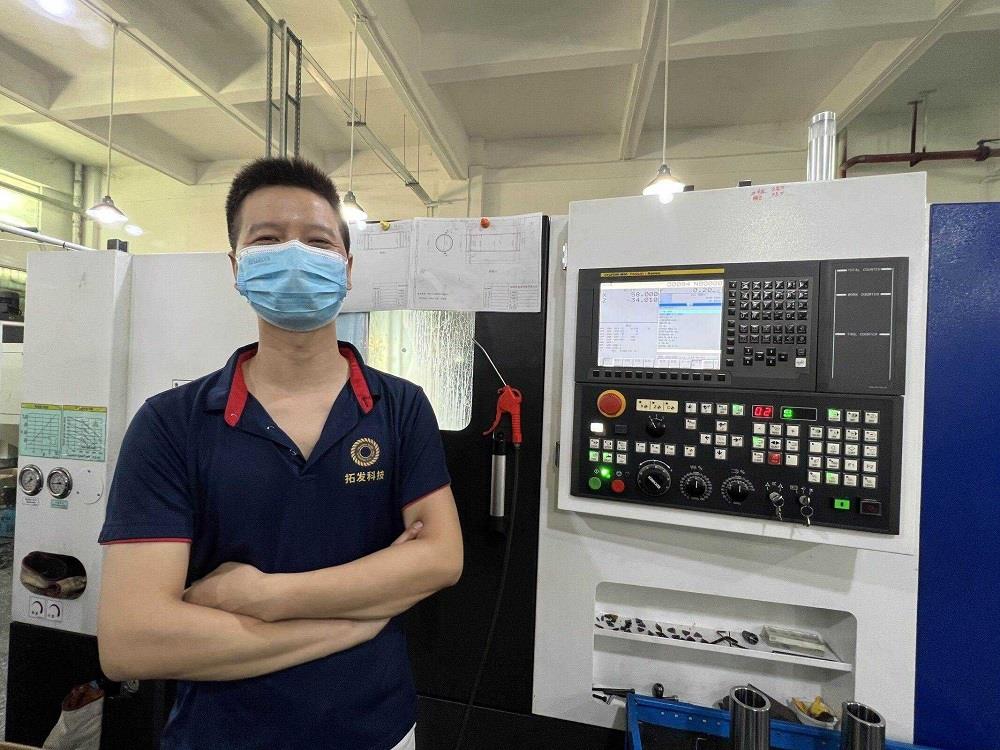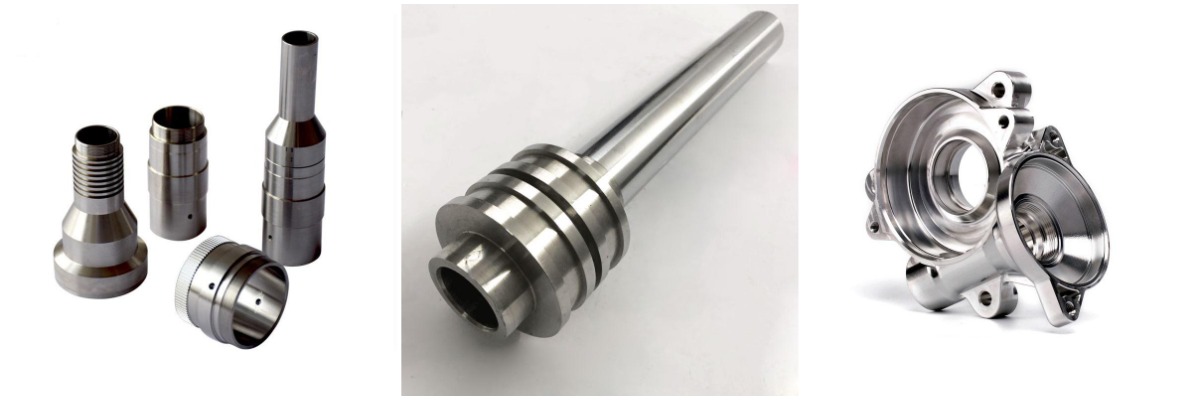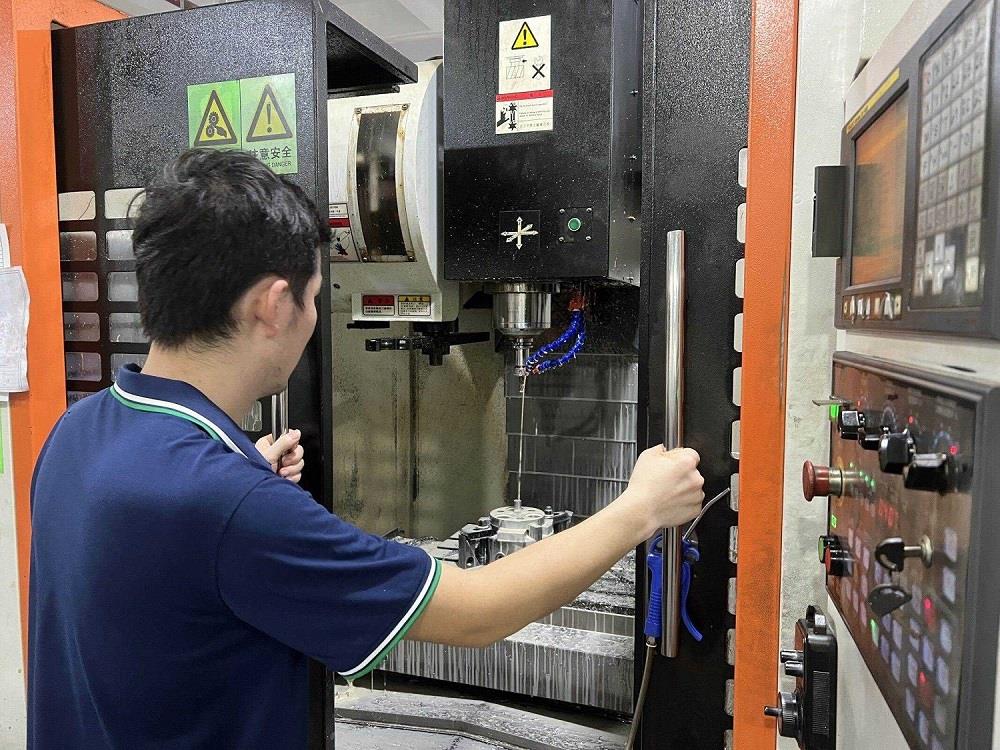Why CNC Machining Titanium Is Difficult?
 Aug 30,2022
Aug 30,2022

Titanium is a strong, lightweight metal that can be machined with precision. However, the machining process of titanium is complex because of its high density and heat resistance. Titanium must be cut using the same tools and machines to be formed into precise parts. Additionally, the metal must be cooled quickly, so it does not become brittle. The titanium also has a low melting point, requiring unique metallurgical processes to create alloys. Titanium machining is an essential process in manufacturing titanium components and products. A CNC machining manufacturer can help you achieve the quality, accuracy, and precision required for titanium machining.
Is titanium harder to machining than stainless steel?
Yes, titanium is harder to machine than stainless steel. This is because titanium has a high density and heat resistance. It must be cut using the same tools and devices to form into precise parts. Additionally, the metal must be cooled quickly, so it does not become brittle. The titanium also has a low melting point, requiring unique metallurgical processes to create alloys. Consequently, machining titanium can be difficult and time-consuming. However, with the help of a CNC machining manufacturer, the quality, accuracy, and precision required for titanium machining can be easily achieved.
Titanium is a solid metal often used in aircraft and other high-strength applications. However, titanium is harder to machine than stainless steel, leading to increased costs and delays in production. One reason for this difficulty is that titanium does not readily form Tool Steels or tool bits that can be used for machining. Additionally, the titanium alloy must be carefully heat treated to make it resistant to wear and tear. So, Titanium machining is not for the faint of heart or those without experience in this manufacturing process. CNC machining China can help you attain the best accuracy and precision required for titanium machining. Professionals can advise you on the best machining methods and tools for your project.
Titanium is solid and lightweight metal, but it isn't easy to machine. This is because titanium does not readily form Tool Steels or tool bits that can be used in machining. Additionally, the titanium alloy must be carefully heat treated to make it resistant to wear and tear. So, Titanium machining is not for the faint of heart or those without experience in this manufacturing process.

CNC machining titanium parts application
CNC machining is the process of cutting parts from a solid piece of metal using a computer-controlled router or another machine tool. Titanium is an alloy made of titanium, vanadium, and carbon. It is one of the most challenging metals to machine because it has a high resistance to wear and corrosion. This makes titanium ideal for aerospace and other high-tech applications where durability and reliability are essential. Titanium alloys are difficult to machine because of their high strength-to-weight ratio. Titanium is about twice as heavy as aluminium but only a fraction of the thickness. Machining titanium parts requires excellent precision and accuracy in cutting because even the slightest misalignment can cause the function to fail.
Tuofa CNC machining believes that: Due to its high hardness and low weight, titanium is widely used in a variety of industries, including areas such as aerospace, automotive, and medical devices. However, due to its high cost and difficulty in machining it into desired shapes and sizes, titanium parts are often manufactured using traditional methods such as milling or forging. CNC machining is a more recent technology that can produce accurate and precise titanium parts faster than conventional methods.
Applications as platinum 3D printing
Using titanium Machining in 3D printing has led to various new and innovative applications. Titanium is a solid and light metal, which makes it ideal for use in 3D printing applications that require a high level of durability. Titanium is also heated tolerant, which can be used in applications with high temperatures. This makes it perfect for use in medical devices, prosthetic limbs, and other high-tech components. One of the most significant advantages of titanium alloys in 3D printing is their ability to produce parts with intricate details. Because titanium alloys are so strong, they can be used to create pieces that are both lightweight and durable. This makes them perfect for use in more complex 3D printing applications. Titanium alloys also have excellent resistance to corrosion, making them an ideal material for parts that will be exposed to environmental conditions such as water or salt.
Platinum machining and electrical contact
One of the most significant benefits of using titanium in 3D printing is its ability to produce parts with intricate details. Because titanium alloys are so strong, they can be used to create pieces that are both lightweight and durable. Another great advantage of using titanium alloys in 3D printing is their ability to produce parts with electrical contacts. Titanium is a metal that is capable of withstanding high levels of electrical current, which means it can be used to create components that have contact points. This makes titanium alloys an ideal material for use in medical devices and other high-tech features.
Using titanium machining in jewellery
One of the most popular reasons people use titanium alloys in 3D printing is their ability to create jewellery. Because titanium alloys are so strong and lightweight, they are perfect for creating durable and beautiful pieces. This makes titanium alloys an ideal material for use in jewellery and other types of accessories.

Influence of CNC machining titanium service on the manufacturing industry
The custom machining industry has seen a significant increase in popularity in recent years, as the technology has proven to be an efficient and effective way to produce intricate titanium parts. In particular, the use of CNC machining has had a significant impact on the manufacturing industry, as it has allowed for the production of components with tighter tolerances and greater precision. In terms of applications, this technology is particularly well-suited for producing features used in aerospace and other high-performance industries. Overall, CNC machining is a highly versatile technology that has significantly impacted the custom machining industry and the overall manufacturing industry.
CNC machining is a powerful tool that has significantly impacted the manufacturing industry over the past several years. As mentioned earlier, this technology can produce accurate and precise titanium parts with minimal variation in shape or size. This makes it an ideal method for producing components for applications such as aerospace, where tight tolerances are essential for the performance of a product. In addition, CNC machines can have multiple identical copies of a part with minimal variation in shape or size, making them perfect for production purposes where accuracy and consistency are critical. Overall, CNC machining is a highly versatile technology that has significantly impacted the Titanium manufacturing industry over the past several years.
CNC machining has had a significant impact on the manufacturing industry and is likely to continue to do so in the future. As mentioned earlier, CNC machines can produce parts with extremely tight tolerances, which is essential for applications such as aerospace. This capability has led to a surge in the use of titanium parts in various industries, most notably in the automotive and medical sectors. In addition to providing increased accuracy and precision, CNC machines can produce multiple identical copies of a part with minimal variation in shape or size. They are perfect for building complex components that would be difficult or impossible to manufacture using other methods. Overall, CNC machining is a highly versatile technology that has profoundly impacted the way. Titanium products are manufactured across a variety of industries.
Despite the many benefits of using CNC machines for manufacturing titanium parts, a few drawbacks should be considered when choosing this technology for a specific project. One of the main drawbacks of using CNC machining is that it is prolonged and requires a lot of time and effort to produce a finished part. Additionally, because CNC machines are so precise, they can also be challenging to operate and are not well suited for some tasks that require flexibility or accuracy in how the part is formed. As a result, titanium parts produced using this method are typically used in applications where speed, precision, and stability are more important than flexibility or adaptability. While CNC machining is an efficient way to produce titanium parts at high-quality levels, it may not be the best choice for all projects.
Things to consider while using titanium machining
When machining titanium alloys, there are a few key things you need to keep in mind if you want to produce quality parts. First and foremost, titanium is a rigid metal and requires special tools and techniques when being machined. Second, titanium is not as forgiving as other metals when it comes to errors made during the machining process. Finally, titanium has a low melting point which means that it can be easily damaged if heat is applied too quickly or incorrectly. Taken altogether, these factors make titanium machining an extremely challenging task and require careful consideration if you want to produce parts from this alloy successfully. Some other things to consider are as follows:
Heat buildup for titanium machining
One of the biggest challenges you will face when machining titanium is heat buildup. This happens because titanium has a shallow melting point, and therefore, it doesn't take as much heat to cause it to melt. As a result, parts that are machined from titanium will often become very hot and may even start to glow. This is dangerous in terms of the tooling and the person operating the machine.
Precision and accuracy
Another big challenge when machining titanium that it is complicated to achieve precision and accuracy. This is because titanium has a low yield strength, and therefore, it doesn't take much force to cause it to break. Additionally, titanium has a very high scrap rate which means that it is often easy for parts to become damaged or even scrapped during the machining process. Due to its hardness, titanium can be difficult to machine accurately, leading to poor results. To avoid this, it is essential to use accurate tools and follow specific manufacturing procedures when machining titanium parts.
Durability
Regarding titanium machining, one of the most important factors is durability. While parts can be machined correctly, they will eventually fail if they are not durable. To achieve high levels of durability in your Titanium parts, it is essential to use quality materials and ensure that the manufacturing process is done correctly. Although titanium is a solid alloy, it is also susceptible to corrosion and other forms of damage. As a result, taking precautions while machining titanium parts is essential to avoid injury and ensure that they remain durable over time.
Galling for titanium machining
One more consideration when machining titanium is the tendency for the metal to form galling bonds. This occurs when the titanium starts to form a layer of nickel on the surface of the metal. Galling is a severe problem because it can lead to cracking and, ultimately, failure of the part. One of the most common issues with titanium machining is galling. Galling is when the metal starts to stick to the tool and causes wear and tear on both the device and the part being machined. This is often a result of incorrect details sizing or poor machining techniques. To avoid this, it is essential to use quality tools, follow precise manufacturing procedures, and make sure that the material used is appropriate for titanium machining.

www.tuofa-cncmachining.com Final thoughts
CNC machining titanium is difficult for a variety of reasons. One reason is that titanium has a high melting point, so creating a clean, cutting edge on the mower can be challenging. Additionally, titanium is rigid and brittle, making machining difficult. Finally, titanium does not readily accept machining fluids and lubricants, so it often requires special techniques to get the job done correctly. CNC machining titanium parts through CNC in China is a complex process, but it can be completed with careful planning and execution. There are several factors to consider when machining titanium, including the metal's susceptibility to corrosion and other forms of damage. By following this informative article, you can ensure that your titanium parts are reliable and last for years by using them in various manufacturing applications.
 Tel/WeChat:
Tel/WeChat:  Email:
Email: 
 Home
Home
 Present situation of CNC machining technology for stainless steel
Present situation of CNC machining technology for stainless steel 







